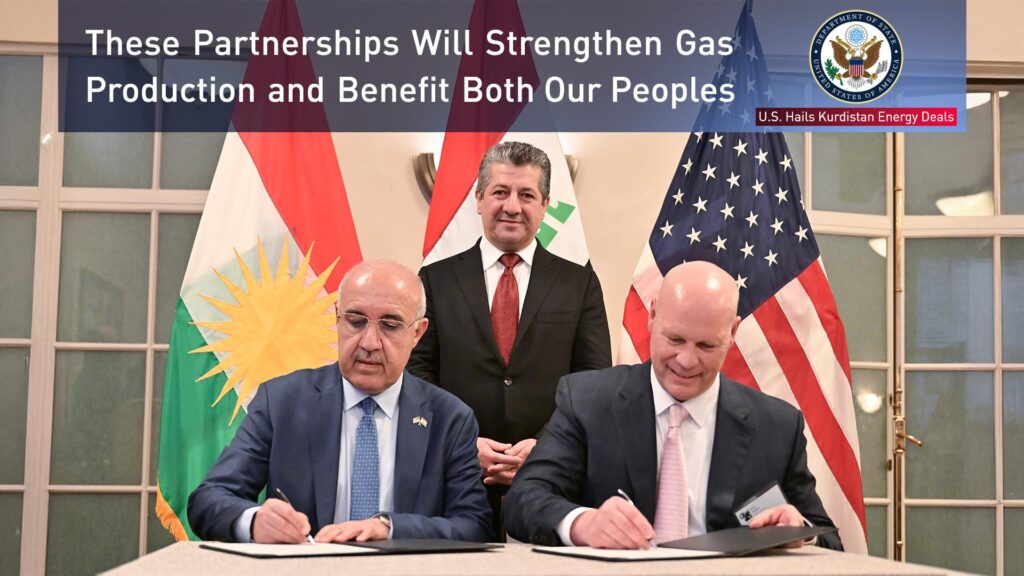Escalating Dispute Over KRG Gas Contracts and Iraqi Sovereignty
The Kurdistan Regional Government’s (KRG) recent signing of multiple gas development agreements with international firms has intensified the longstanding friction with Iraq’s central government in Baghdad. These contracts, designed to enhance the Kurdish region’s energy infrastructure and economic self-reliance, have been met with strong opposition from Baghdad. Officials there argue that such unilateral deals contravene Iraq’s constitution by bypassing federal oversight, thereby threatening national cohesion. This clash not only deepens existing disagreements over oil revenue allocation but also casts uncertainty on Iraq’s future energy governance.
At the heart of this dispute lies a fundamental contest over control of natural resources and fiscal authority within Iraq’s federal system. The key issues fueling tensions include:
- Constitutional Legitimacy: Baghdad maintains that the KRG lacks legal authority to independently negotiate resource contracts.
- Revenue Allocation: Questions persist about how income generated from these agreements will be shared amid Iraq’s ongoing economic challenges.
- Political Fragmentation Risks: The moves by Erbil risk exacerbating divisions between Kurdish authorities and the central government.
| Dimension | KRG Perspective | Baghdad’s Stance |
|---|---|---|
| Sovereign Rights | Asserts exclusive jurisdiction over regional resources | Deems actions unconstitutional and undermining unity |
| Use of Revenues | Aims to reinvest funds into local development projects | Doubts fairness in distribution across all Iraqi regions |
| Future Investment Plans | Aggressively courting foreign investors for expansion | Pledges potential legal measures to halt unauthorized deals |
Impact of KRG Gas Agreements on Iraq’s Economic Stability and Oil Revenue Sharing
The independent gas contracts signed by the KRG have raised alarms regarding their broader economic consequences for Iraq, particularly concerning national oil revenue streams vital for federal budget stability. Given that oil exports constitute approximately 90% of government revenues—according to recent data from the International Energy Agency—the fragmentation caused by parallel deals threatens fiscal cohesion at a critical juncture when global energy markets remain volatile.
This discord could undermine investor confidence in both Kurdistan and wider Iraqi oil sectors, potentially slowing down much-needed foreign direct investment essential for modernization efforts. Moreover, if revenue-sharing disputes intensify, funding allocations for public services such as healthcare, education, and infrastructure may face significant shortfalls during an already fragile recovery period post-pandemic.
- Divergent Revenue Streams: Continued unilateral agreements risk creating competing financial flows outside centralized mechanisms.
- Deterioration in Investment Climate: Political instability may discourage multinational corporations from committing capital amid regulatory uncertainties.
- Burdens on Federal Budgeting: Reduced or delayed transfers could strain social programs reliant on consistent funding sources.
| Economic Indicator | Status Before KRG Deals | Status After KRG Deals
Oil Revenue Distribution Stable At Risk Foreign Direct Investment Increasing steadily Potential decline due to political uncertainty Public Service Funding Sufficient Threatened due to budgetary constraints Strategies for Resolving Energy Conflicts Between Kurdistan Region and Central GovernmentNavigating the complex dynamics between Erbil and Baghdad requires deliberate efforts centered around constructive engagement. Establishing open communication channels is paramount; both parties must commit to transparent negotiations aimed at crafting equitable frameworks governing resource management. An emphasis on accountability can foster mutual trust while ensuring that any agreed-upon revenue-sharing models reflect fair representation of all stakeholders’ interests across Iraq’s diverse regions. Furthermore, broadening collaboration beyond domestic actors—by involving reputable international investors experienced in conflict-sensitive environments—can introduce technical expertise alongside financial support necessary for sustainable sector growth. A formalized conflict resolution mechanism should be prioritized as well; this would provide structured avenues for addressing disputes proactively before they escalate into political crises or disrupt vital investments within energy markets. Concluding Perspectives: The Future Outlook Amid Regional Tensions in Iraq’s Energy SectorThe latest wave of gas contracts initiated independently by the Kurdistan Regional Government underscores persistent challenges facing Iraq’s unified management of its hydrocarbon wealth. While Baghdad insists upon constitutional adherence emphasizing centralized control, Erbil pursues greater autonomy through strategic partnerships aimed at regional development enhancement. Observers anticipate continued debate surrounding sovereignty claims alongside concerns about maintaining stable investment climates crucial not only domestically but also globally given Iraq’s role as a major energy supplier contributing nearly 4 million barrels per day according to OPEC statistics (2024). As these developments unfold amidst geopolitical complexities—including shifting alliances within Middle Eastern energy politics—the international community remains vigilant regarding potential ripple effects impacting market stability. Ultimately, resolving these tensions will require compromise grounded in respect for constitutional frameworks balanced against pragmatic recognition of regional aspirations—a delicate equilibrium essential if lasting peace and prosperity are to be achieved throughout all parts of Iraq. |
|---|

